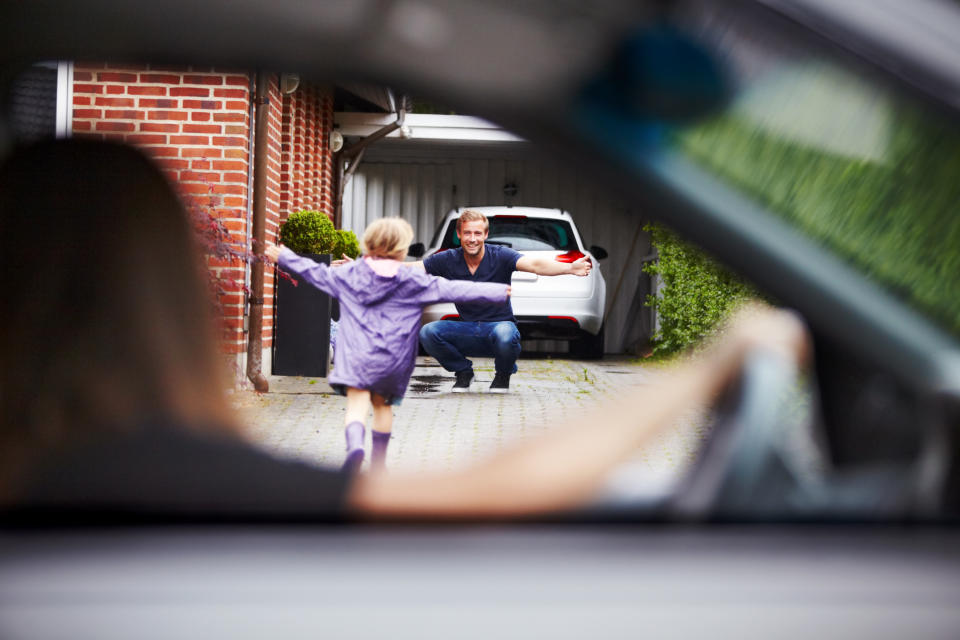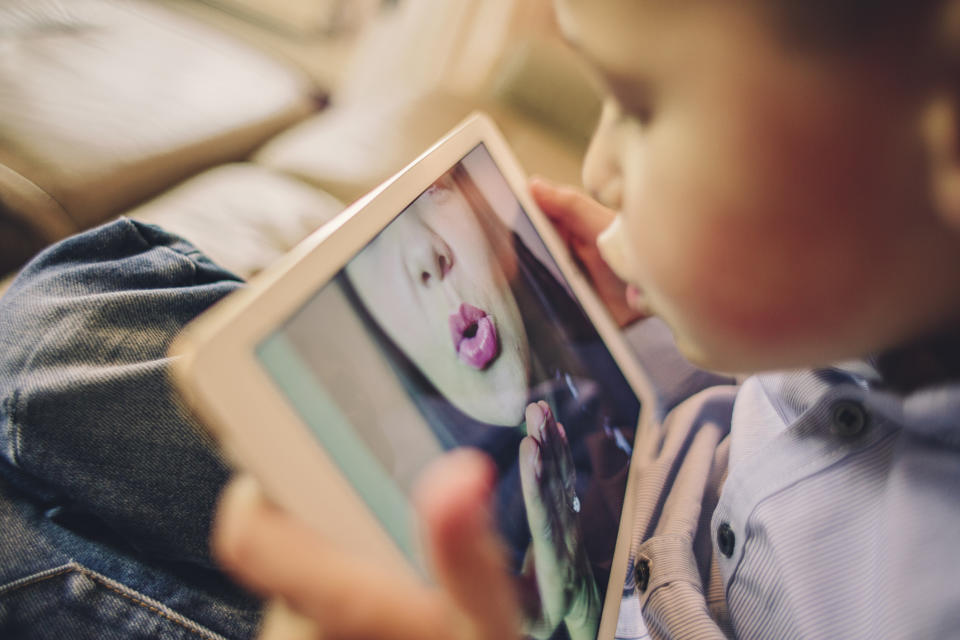Government clears up confusion about whether children of separated parents can visit two households during coronavirus 'lockdown'
Children with separated parents will be allowed to visit both of them despite the coronavirus lockdown, the government has confirmed.
Last night Boris Johnson issued a ban on visiting any household other than the household you are currently in.
That sparked questions about whether children who split their time between two parents, would be able to visit both households under the new ‘rules’.
And this morning Cabinet Office minister Michael Gove added to the confusion when he told ITV’s GMB: “You should not be moving children from home to home.”
Later, however, he admitted he had not been “sufficiently clear” before clarifying to BBC Breakfast that he had got it wrong, and children can move between both their parents after all.
“One of the things I'm anxious to do is make sure we minimise social contact,” he said.
“But children under the age of 18 can see both parents.”
Latest coronavirus news, updates and advice
Live: Follow all the latest updates from the UK and around the world
Fact-checker: The number of Covid-19 cases in your local area
Explained: Symptoms, latest advice and how it compares to the flu

While schools shutting and the UK virtually being placed on lockdown is a tricky enough situation to navigate for all parents, for those who have separated from their child’s other parent it is even more difficult, particularly in light of yesterday’s new guidance.
One parent who has been left feeling unsure about how to co-parent with her ex-partner is Keira O’Mara, founder of The Online Baby Show (a free 3 day resource for pregnant women and new parents in lockdown with experts, shopping and celebrity interviews).
The 42-year-old from Birmingham separated from the father of her oldest children, aged 13 and 10, almost seven years ago.
Before the coronavirus outbreak the children stayed with their father every Wednesday overnight and every other weekend from Friday evening to Monday morning, but outbreak has meant the have already missed some overnights with their dad.
“They are missing their dad. They face time every day but it is not the same,” Keira explains.
She says she is finding the new rules and this morning’s confusion surrounding them difficult to deal with and she is torn about what to do for the best. .
“When I think about the mental health of my children, and the parent not seeing them, I want them to go between the two homes, but I do think that it is risky,” she explains.
The situation is confounded by the fact she also has a 9 month old baby.
“I am so torn. We will absolutely go with government advice though. They just need to be 100% clear on what that is as it is a very grey area at the moment.
“It’s about realising that sometimes there might be a difference of opinion but that ultimately we both love our children and will put them first,” she adds.

Read more: Online classes and activities children can take part in during the coronavirus outbreak
What do the legal experts say?
Cara Nuttall, Partner at JMW Solicitors and children law specialist is urging the government to clarify the new ‘lockdown’ measures for separated parents. “Formal child agreements and orders are vital for giving certainty of routine for separated parents and children, but they can never cover all eventualities,” she says.
“Unexpected circumstances will always arise, however COVID-19 has heralded many more uncertainties than a minor swap or simple adjustment and has created significant stress and confusion among many parents.”
Nuttall says a huge number of people are extremely concerned about the new measures so it's vital that the government makes its expectations clear, with guidelines confirming that children can indeed continue to move between homes.
“However, it's vital that routine never trumps safety,” she continues. “The first and most important consideration is what is best - and safest - for the health and wellbeing of both the children and wider family.
“While guidelines do state that children can move between homes during this period of ‘lockdown’, it will undoubtedly be more difficult for children to do this in the same way as before.”
Nuttall suggests parents try to work together in the best interests of children and remember that, when the dust does settle, judges will be looking keenly into the manner in which parents conducted themselves - and indirect contact - during this time.
“Whatever families decide, child focus and recognition of relationship must remain the priority,” she continues. “There is no merit - tactically or practically - in insisting on adherence to routine if it places anyone at risk.”
Read more: Coronavirus sees 2000% surge in 'I Don't Want To Wash My Hands!' book
Nuttall says courts will not enforce adherence to an order over safety and wellbeing and will not endorse any parent doing so.
“Parents must remember that these are exceptional times, and everyone is muddling through. The court will view anything that happens now in context - the only thing likely to harm a parents' long-term position is a refusal to be sensible and child-focused.”
As Nuttall points out these are exceptional circumstances, but in an already fraught time, it can be difficult navigating tricky family relationships.
“Co-parenting can be challenging at the best of times, so the covid-19 outbreak is adding fuel to the fire for some,” explains Emma Bradley, childcare.co.uk’s parenting expert.
“The latest announcement was misleading and we have since had clarification that children can still move between both households.”
Bradley suggests parents of children who split their time in two households judge things based on their own personal situation.
“Obviously children that usually have regular contact with both parents will want to continue seeing their parent outside the home as normal. Yet this might not be practical and is not black and white.
“If one parent is still working outside of the home those children will be exposed to greater risks than if they stay at home with a parent not working. If both parents are working from home there is less risk and you may continue to share childcare,” she adds.

Read more: Best apps to help you stay connected to loved ones while practicing social distancing
How to successfully co-parent during coronavirus outbreak
Bradley has put together a list of tips to help co-parents navigate the situation since ‘lockdown’ has been imposed.
Try to make decisions together
Bradley believes that parents need to make the decision on access between them, particularly in the case of younger children. “Don't ask the children to make a decision as that is just too big a responsibility for them,” she explains. “As adults we are struggling to understand the logistics ourselves which makes it impossible for primary school aged children to understand.
“Teenagers may be better placed to have an opinion and share a preference for how they would like to see contact maintained, but use with caution,” she adds.
Maintain contact through technology
She suggests setting regular times to FaceTime or phone the other parent. “Children may not want to stay on the call for long as it is not the same as physically being together but the other parent could read a story or a chapter of a book or something similar to maintain the relationship.”
Be communication positive
“Relations between separated couples may be strained, but now more than ever it is important that they attempt to communicate in a positive way for the benefit of their shared child(ren) who will be feeling sad and confused at not seeing both parents,” Bradley advises. “Talk to your ex calmly and understand that everyone will be feeling emotional at this time,” she adds.
Look to the future
And remember that this is not forever, this is for a period of three weeks initially and it is a public health measure designed to save lives.



